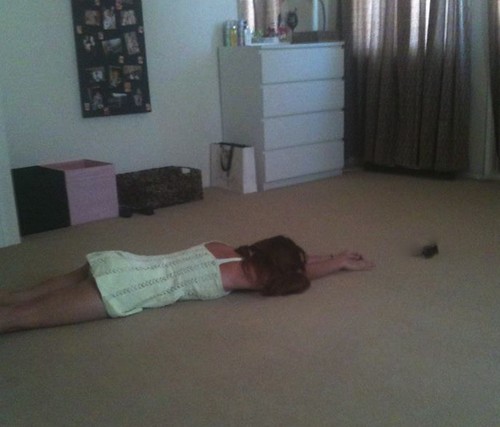Professionally, the other major influences were Bob and Mary Goulding who taught me how to understand people. Not just how to observe people but how to listen with my eyes. How to stop listening to them talking and start observing them, then one can truly see who they are and what they want.
Another significant influence was the quintessential Gestaltist Jim Simkin who always left me marvelling at how he did what he did. Where he could take clients and how he took them there was craftsman like. The other person who did influence me was Michael Conant and his training in bioenergetics. How to understand the psyche of a person by looking at their body. How the bits fit together, the body holding patterns, where it bends and where it does not and how it moves. I have never been interested in practising body therapies but ‘body reading’ as they call it is a major part of bioenergetics which again taught me how to observe people.
Then of course there is the theory of transactional analysis of which cognitive behaviour therapy forms a significant part. This provides me with the nuts and bolts and practicalities of the counseling process. The behavioural things you do with the client.

Service
I was asked recently by a supervisee what approach do I use and I could not answer the question. I used to be able to answer that question and was a bit surprised that I felt I no longer could. I could no longer identify a approach that I would say defines me as a counselor or psychotherapist. Initially this concerned me as it seemed to be a retrograde step. I had gone from knowing who I was to not knowing who I was. Needless to say I subsequently pondered the question for some time.
I can state the practicalities of what I do with a client and I can cite the influences on myself as a counselor, as I have done above. Perhaps that means I am now eclectic in my approach. I have never liked the idea of being an eclectic counselor as it seems one is a collection of a lot of things but not really any of them. It seems to lack a substance.

Fainting woman and the dead mouse
As I thought about the question in the subsequent days, I wondered what had changed such that a question I once could answer, I no longer could. In my musing I calculated that I would have done between forty to fifty thousand hours of counseling in my thirty two years of working. It seems logical that if one does a task for that long then it stops being something that you do and becomes part of who you are. You have done the task so many times it becomes second nature, ‘in your bones’ and part of your character.
This idea then allowed me to answer the question. I am a person, Tony White and there are many parts or aspects of me, one being a counselor. When I go to work I am simply being me. This is what the client gets, me the person, with the counselor being part of me. I think I have shifted from being a counselor who happens to be named Tony, to being Tony who also happens to be a counselor. As you can imagine this answer left me feeling much more secure in who I am in my work.

Is this me or am I just doing it?
Graffiti
Interesting post. You made a couple of references to the importance of visualizing your clients when you are working. Would you be significantly less effective doing Internet counseling (for example, text-based chat rather than Skype)? If you became blind, could you continue working as a counselor?
ReplyDeleteThat is a good question KYLady. I have done counseling via email and indeed telephone counselling and I think I do OK. But i think my natural way of being is as an observer so one could assume i would be less effective. Graffiti
ReplyDeleteHi Tony, I've just recently found your blog which I am really enjoying, it seems I have a lot of catching up to do. I have my own blog(s) but I'm quite new at it all :) I really relate to your way of working, and yes after a few years you become your own person in the therapy room. I think that for the first few years you need your clients more than they need you, to find out who you are as a therapist, and then it all seems to click into place and suddenly you relax into being the therapist you are, the theory and approach become secondary. I relate this way of working to a proverb I once heard 'find a job that you enjoy doing, and you will never work another day in your life'. Wow you are so lucky working with the Gouldings, they left a large gap behind when they left this world :(
ReplyDeleteHello ,
ReplyDeleteI am glad you like the blog and the posts I have done.
And I agree with what you were saying about relaxing as a therapist where one stops doing something and becomes something. Certainly as a therapist this is most advantageous.
And it was great to have met and worked with Bob & Mary Goulding. I might even do a bit of a post on this .
Regards
Tony
Where psychotherapy treatment is involved, you should need on an experienced psychotherapist to offer you with the solutions. An expert in this area will allow you to take care of your issues within the quickest time possible. Most types in treatment need a patient/client to be put under statement so as to examine on their feelings and other mind encounters.
ReplyDeletePsychotherapist Sydney